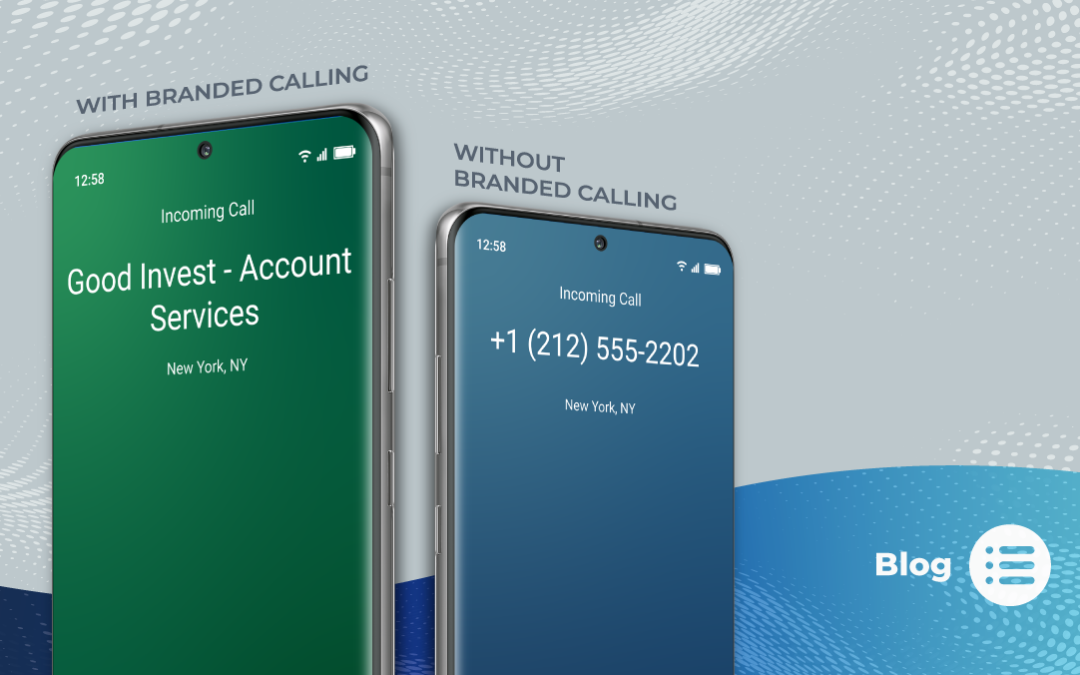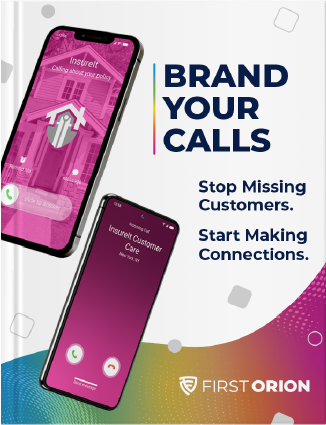Blog
Newest

Expanding Secure Branded Communications Beyond the U.S.: Our Next Chapter in Europe
By Temim Nawaf Adwan, EMEA Managing Director Over the past several years, First Orion has established a proven track record in the United States by delivering call protection and secure communications through our INFORM® Branded Calling solution. By helping thousands...
Expanding Secure Branded Communications Beyond the U.S.: Our Next Chapter in Europe
Europe is facing a fraud crisis, with 400 million people exposed to spoofing scams. First Orion is meeting this challenge head-on by expanding our secure branded calling solutions to the EU, powered by the new International Exchange and strategic carrier partnerships.

How Branded Calling Scales with Your Business
Unanswered calls and incorrect caller ID information cripple modern business outreach. What if your calls could build...

Reflecting on 2025: A Year of Innovation, Expansion, and Impact
2025 has been a remarkable chapter in First Orion's story, marked by imagination, momentum, and purpose. This year, we...
Sign up to receive news & insights from First Orion!
Get our monthly newsletter to keep up with the latest on Branded Communication and scam protection for businesses.
All Posts
How to Prevent Scam Calls From Reaching Your Customers
Outbound numbers are vital brand assets, but spoofing has turned them into liabilities. Discover how SENTRY® Call Blocking uses a “Zero Trust” architecture to block unauthenticated calls at the network level, protecting your reputation and restoring answer rates.
Expanding Secure Branded Communications Beyond the U.S.: Our Next Chapter in Europe
Europe is facing a fraud crisis, with 400 million people exposed to spoofing scams. First Orion is meeting this challenge head-on by expanding our secure branded calling solutions to the EU, powered by the new International Exchange and strategic carrier partnerships.
How Branded Calling Scales with Your Business
First Orion’s INFORM Branded Calling grows with you. Display your logo and name on customer phones, increase answer rates, and build trust at any business size.
Reflecting on 2025: A Year of Innovation, Expansion, and Impact
In 2025, First Orion transformed voice and messaging with innovations like Protect+ for inbound call security, SENTRY expansion, and ENRICH Branded Messaging, driving trusted communication worldwide.
ENRICH Branded Messaging the Smarter, Faster Way to Engage With Customers
Today, customers are bombarded with text messages, many of them from unknown senders. This flood of unverified communication makes it harder than ever for businesses to cut through the noise, build trust, and create meaningful interactions. That...
The Good, the Bad, and the Ugly of Spam Tag Remediation
Spam tags are crippling legitimate business connections. This article exposes why appeal services fall short and outlines the steps to solve call blocking issues.
Safeguard Your Brand: Why AFFIRM Reputation Monitoring is Essential
Take proactive control of your outbound call reputation. AFFIRM™ detects and alerts you to ‘spam’ or ‘scam’ tags, helping you improve contact rates and agent productivity.
Why Your Business Needs SENTRY Call Blocking
If you are currently looking for a comprehensive solution that guarantees your numbers are only used for legitimate business and blocks any fraudulent, spoofed calls, then you need First Orion’s SENTRY® Call Blocking.
How Businesses Can Stay Trustworthy in a Shifting Legal Environment
As laws evolve, companies that act with integrity and stay ahead of regulations earn long-term success. Susan Nichols, First Orion Chief Privacy, offers ways to navigate these regulations.
Is Branded Calling Worth it? First Orion Responds to Top 4 Concerns
Learn how INFORM Branded Calling addresses common concerns about branded calling. Boost answer rates, simplify deployment, and get measurable results.
